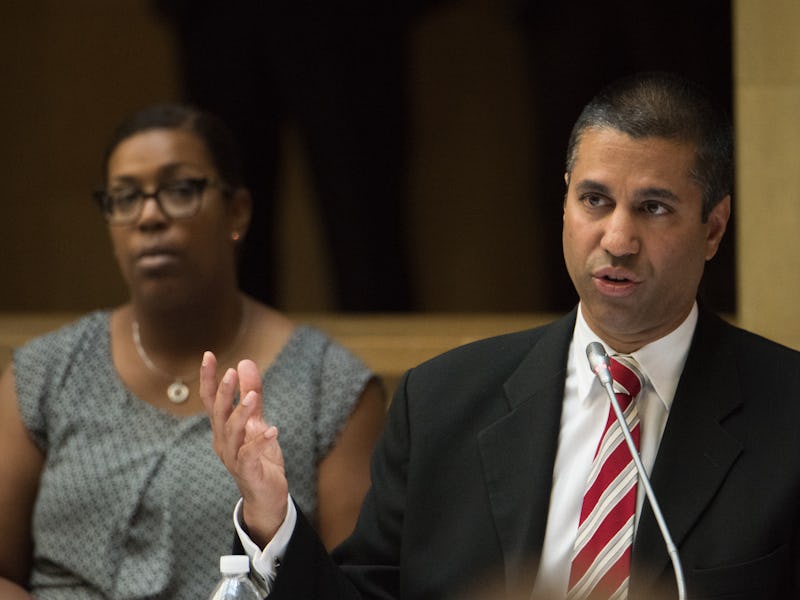The FCC's Repeal of Net Neutrality Is Now Officially Set for April
The official plan will be published Thursday.

The death knell for net neutrality began to ring on Wednesday, as an unofficial version of the FCC’s plan to repeal regulations was posted online ahead of its submission to the Federal Register on Thursday.
Once published, it will take 60 days for the plan to become official policy, meaning that the regulatory repeal will take effect around April 23.
Inappropriately titled the “Restoring Internet Freedom” order, the FCC’s new plan — which was spearheaded by Chairman Ajit Pai, a former lawyer for Verizon — will change internet service providers from their current designation as public utility providers to information providers.
In effect, this move could allow ISPs to control the amount of “information” they provide customers, depending on how much customers pay. This means we could potentially see tiered internet access coming our way in the near future, with certain sites and platforms only available once users pay a premium fee. A move like this could also disrupt small businesses that rely on unobstructed internet traffic — something which has garnered both Democrats and Republicans to rail against the FCC’s decision to strip net neutrality provisions.
The document is 284 pages worth of rationalizing a “light touch” approach to dealing with big telecom based on the idea that it will foster innovation and propel industry. Pai’s exhaustive document also appears to place a large emphasis on the possibilities that an unhinged big telecom will help excel the country’s broadband infrastructure.
“Through these actions, we advance our critical work to promote broadband deployment in rural America and infrastructure investment throughout the nation, brighten the future of innovation both within networks and at their edge, and move closer to the goal of eliminating the digital divide,” the report says.
However, in rural America, state legislators have been actively attempting to circumvent the FCC’s decision, fearing this plan will actually increase the digital divide for anyone who can no longer afford access.
In January, Montana’s governor signed an executive order mandating that all state contracts with internet service providers adhere to net neutrality standards. Also in January, 22 attorneys general filed a lawsuit challenging the FCC’s plan. Now that the plan has been officially laid out and published, we can likely expect more lawsuits from internet advocacy groups coming soon.
You can read the official document here.